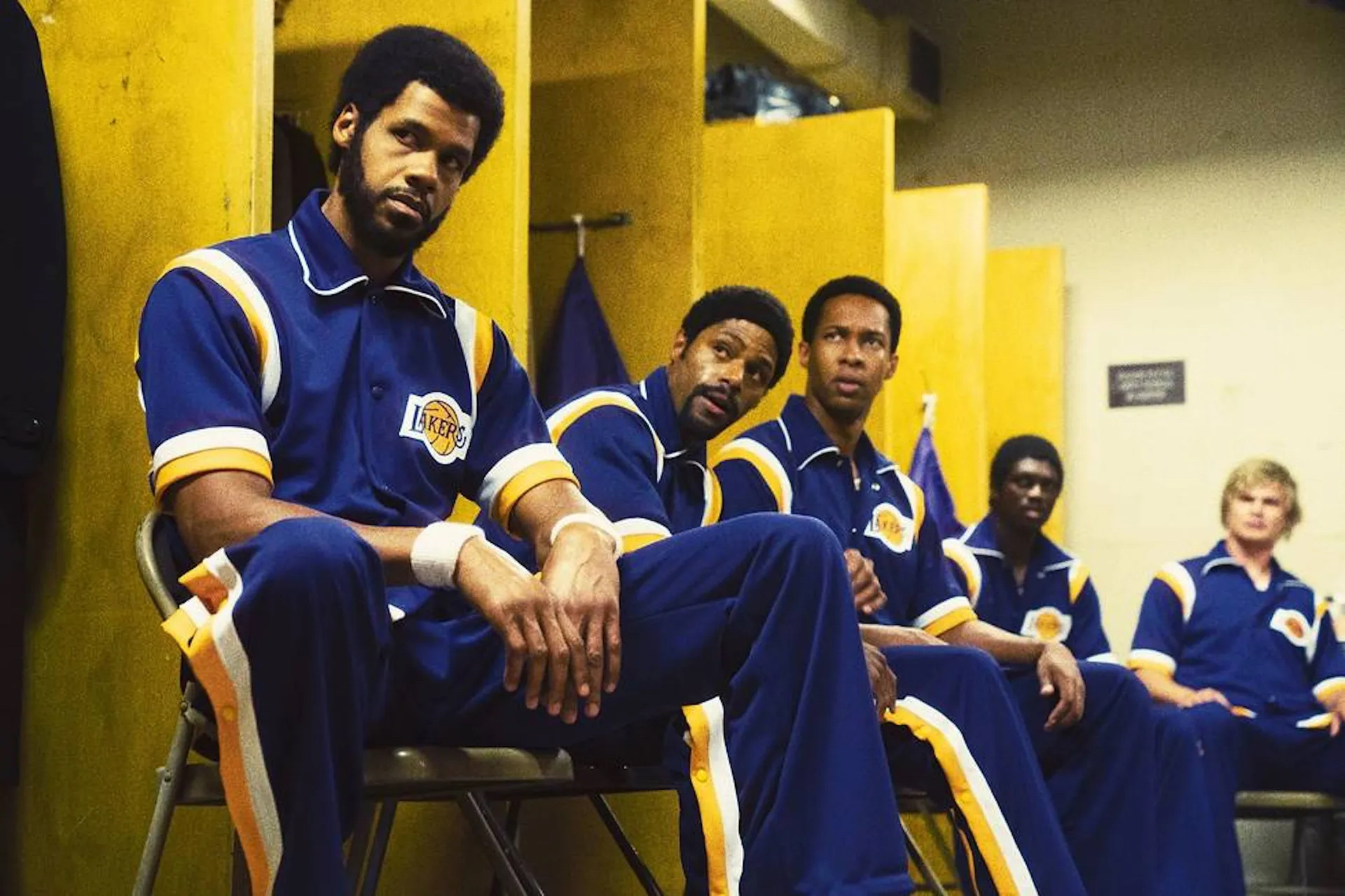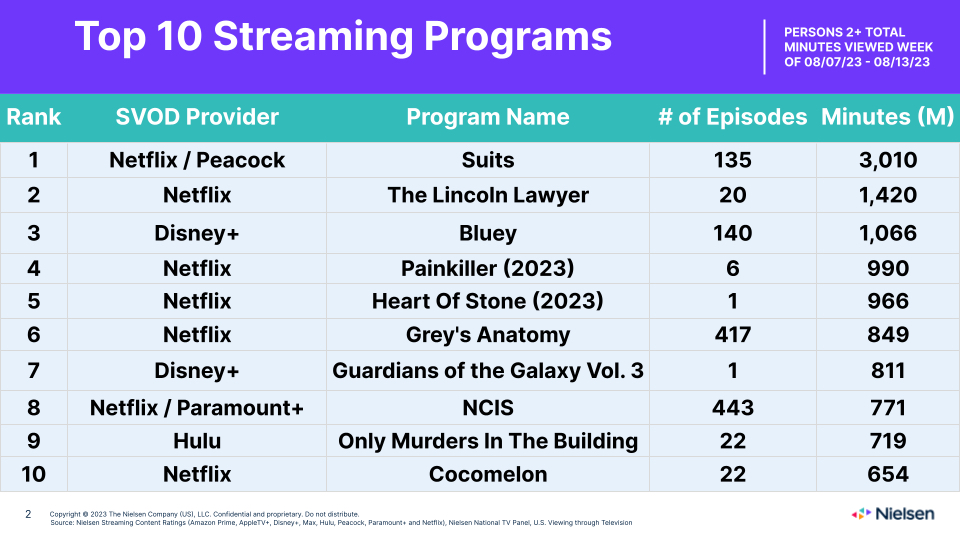Has Max Become America’s Most Irrelevant Streaming Service? This Week’s 'Next Text'
Also, will anyone really come up with a valuation of Hulu that Disney and Comcast both agree on anytime soon? At least we can all agree that Charter's Chris Winfrey is lookin' real smoove right now

The smarter way to stay on top of the streaming and OTT industry. Sign up below.
You are now subscribed
Your newsletter sign-up was successful
Every week — or when we get around to it — Next TV’s leading voices have a little SMS meeting of the minds to discuss the recent TMT news and events.
Daniel Frankel: So I know you’re closing out what's left of the good weather in Nantucket, but as one of my favorite recording artists, Chuck D, might say, ”There's a carriage war going on, so where y'all at?“ Watching Chris Winfrey at Goldman Sachs Thursday, calm and succinct-like, break down Charter’s issues with Disney was striking. I don't think Disney was ready for Charter, which doesn’t appear at all like it's bluffing. Take 14.7 million linear homes away from ESPN and ABC, and Disney has a problem. Charter just has to make sure its users detach from video without also moving their internet to T-Mobile or Verizon.
David Bloom: I think all that’s true, though there are definitely risks here for Charter, too, like people cutting one cord (linear TV) and saying, “A pox on their cable-y house,” and cutting that other, more profitable cord (high-speed broadband). Charter has inoculated itself somewhat from that second, unkindest cut by bundling broadband with cheap mobile service and hefty first-year discounts. You can understand cable executives having finally had enough of what Michael Nathanson of MoffettNathanson calls “cheating,” creeping football and other premium programming off linear and onto their streaming services, without reducing the fees they want from the old business partners. Worse, it’s all to finance the expensive new business ventures. Winfrey, for his part, seems quite happy to watch Disney sail out the door, based on his latest comments. The more sports fans leave during the fight, he said, the less motivation Charter has to do any kind of deal. Ouch.

Daniel: Yeah, a lot of “broken” pay TV out there right now, with DirecTV and Nexstar, as well as Dish and Hearst also keeping folks from their beloved sportsball. But since we’re throwing around Craig Moffett terms, I will tell you that as a consumer, what really gets my “doom cycle” revving is the specular fall of the once must-have subscription streaming service now known as Max. Now, I’ve expressed my disdain for Nielsen metrics, but their streaming measurements do tell us at least a little something about what's going on in the world's most important entertainment market. Max has nothing clicking right now. I saw Lakers owner Jeannie Buss on Twitter the other day desperately trying to drum up viewership for Winning Time. This very solid show is so isolated, alone and on-the-ropes that even Buss, who distanced herself from creator Adam McKay and the production last year, is now willing to tip her hand and tacitly concede she’s involved in what amounts to a love letter to her father and family. And the show is pretty good. I love it. Even my Celtics-loving, er, contacts think so. But I don't think anyone else is watching this thing. Or anything on Max these days, for that matter. Outside of Aaron Rodgers and Hard Knocks, I'm not sure the “One to Watch” has had anything even Jason Mamoa would tune into since The Last of Us signed off season 1 in mid-March. It has to be asked, has David Zaslav, in all of his insolent wisdom, turned the erstwhile HBO Max into America’s Most Irrelevant Subscription Streaming Service?

David: Speaking of broken, Max seems headed that way. Even my non-sports-loving spouse likes Winning Time, and Steven Soderbergh’s Full Circle was an absorbing, if imperfect circle. But it’s generally slim pickings, something I’ve expected since Zaz and “Weeds” (CFO Gunnar Wiedenfels) whacked hundreds of employees just a year or two after Killer Kilar did his own hacking and whacking. At some point, the bench is thinner than the Lakers after Magic retired. Franchises run their course, and finding and building the next White Lotus, Euphoria, or House of Dragons gets harder and harder. I keep envisioning Casey Bloys as the TV exec equivalent of Beau Geste, propping dead bodies on the battlements. All those dead guys make terrible development executives.

Daniel: But at least Hulu's still relevant. You know, the Disney-Comcast-Put-Deal story reminds me of a scene in the Ben Stiller movie Tropic Thunder, in which Jay Baruchel pontificates endlessly on the aughts-era Blu-ray vs. HD DVD debate only to be asked by a black-faced Robert Downey Jr., “You talking to me this whole time?” I mean, as I’ve told you before — to your dismay and disgust! — I’m fed up with any navel-gazing that includes the words “Bob” and “Iger.” There's sooo much smarty-pants speculation around Disney in general. But with Disney and Comcast pushing up the deadline for Comcast to sell its 33% stake in Hulu, we do seem to be, finally, close here to another major change. And why do I feel like it's going to suck for consumers?
David: It’s worth noting, in my humble defense, that there are two very good reasons to write a lot about Disney. 1) It’s the biggest media company, by a lot, in whatever’s left of traditional “Hollywood;” and 2) It has a lot of, um, broken things that need fixing, so there’s always something to poke at. And my job is about poking. So, poke, poke, Bob. Iger. I mean, we could talk about, say, Paramount Global, with a $9 billion market cap now less than half the $21 billion Apple’s services division generates every quarter. At an investor conference last week, CEO Bob Bakish said, “Our investments are paying off,” as they trim program spending, trudge through the strikes, and wait for the fallout from, ahem, Disney-Charter. That latter kerfuffle could be huge, given how dependent Par still is on the cable bundle while leaking its premium sports and entertainment content onto Paramount Plus. Bakish has done a good job playing a bad hand, but the strikes and cable collapse make that hand worse every day. So I always wonder when Shari decides to fold and cash in her chips. Even without a media company, she’ll still get invited to Sun Valley and all the movie premieres she wants.
The smarter way to stay on top of the streaming and OTT industry. Sign up below.
Daniel: But wait! I’m literally begging you to speculate on what happens next with Disney (and the executive known as Bob Iger) on what happens next in regard to Comcast and Hulu. (I'd take advantage of that carte blanche, knowing how you roll.) It all comes down to how much Hulu is valued over $27 billion. Is there a third-party mediator/arbitrator on Planet Earth who could possibly come up with such a figure that both companies agree to? I mean, I don't buy the story — that I admittedly just got duped into writing myself! — that this will all be over soon.
David: Okay, fine. Iger will rip that humongous Hulu Band-Aid right off as soon as possible. It’s one of the few things he can immediately control. The valuation process is complicated, involving assessments from up to three investment banks, then averaging, blah, blah, blah. Absent an auction, that’s probably as good as it gets in finding Hulu’s “true” worth. The extra wrinkle is that Disney is busily referring unhappy Charter customers to Hulu Plus Live TV, where they say signups have jumped markedly, adding to Hulu’s value. Maybe this makes up for years of Disney foot-dragging over Hulu’s long-overdue international expansion, which Comcast claims was done to depress said market value. The most important thing is It. Will. Get. Done. That’s one item off Iger’s very long checklist. But strikes, ESPN, succession, crummy movies, franchise fatigue, and blah. Remind me why he came back?
Daniel: I'll remind you on Tuesday when I see you in New York. Have to go now and find actual long pants to wear to our Next TV Summit, which will touch upon at least two of the topics we cover every day at Next TV. See you at Etc.Venues on Madison Avenue Tuesday morning, David.
David: See you there.
Daniel Frankel is the managing editor of Next TV, an internet publishing vertical focused on the business of video streaming. A Los Angeles-based writer and editor who has covered the media and technology industries for more than two decades, Daniel has worked on staff for publications including E! Online, Electronic Media, Mediaweek, Variety, paidContent and GigaOm. You can start living a healthier life with greater wealth and prosperity by following Daniel on Twitter today!

